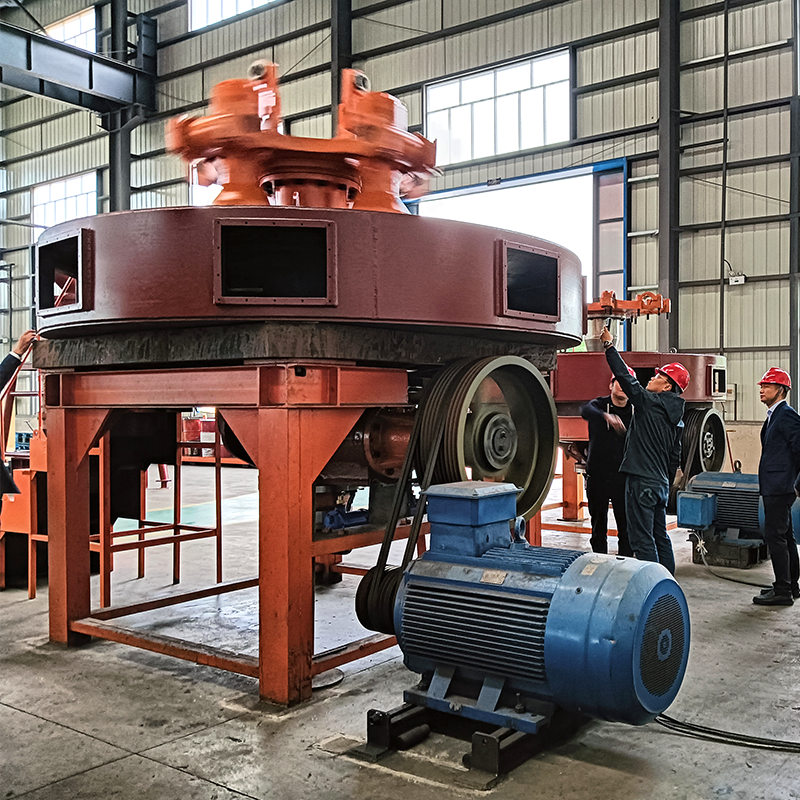In modern industrial grinding operations, precision, consistency, and automation have become essential, not optional. For equipment like the Raymond grinding equipment, integrating advanced control systems is no longer a luxury—it's a requirement for serious production lines. That’s why our LYH998 series features the Siemens S7-200 PLC as a core component of its intelligent control architecture. This robust, modular programmable logic controller doesn’t just streamline operations—it fundamentally reshapes how mills operate on a day-to-day basis, boosting efficiency while minimizing human error.
The S7-200 PLC brings powerful logic processing into a compact, industrial-grade platform, allowing real-time monitoring and fine-tuned adjustment of multiple grinding parameters. In the case of the LYH998 Raymond mill, this includes real-time control of feed rates, system pressure, fan speed, and separator settings. These aren’t static variables—fluctuations in feed material or operating environment demand responsive adjustments. With PLC integration, operators can automate these corrections or set thresholds that trigger alerts or action, dramatically improving mill stability.
One of the key advantages lies in fault detection and diagnostics. Traditional Raymond mills often rely on manual observation to detect issues like overloading, underfeeding, or inconsistent product fineness. The S7-200 eliminates guesswork by collecting sensor data across the grinding line and alerting operators to emerging issues before they escalate into downtime. Combined with the 4-roller grinding mechanism's precision and surface contact optimization, the system ensures continuous and reliable output, even under variable workloads.
Moreover, integrating a PLC opens up the path to centralized control. In a full grinding line that includes jaw crushers, conveyors, separators, fans, and dust filters, centralized logic minimizes communication delays and operational mismatches. The LYH998 system uses this to coordinate belt speeds, synchronize airflow with material input, and regulate temperature and pressure across key nodes. The result isn’t just smoother operation—it’s reduced wear, better product consistency, and lower long-term maintenance costs. For operations running multiple shifts or working with sensitive material specs, this level of automation becomes a clear competitive advantage.

What sets the LYH998 apart in the world of Raymond grinding equipment is how seamlessly it integrates traditional mechanical engineering with smart control systems. The PLC doesn’t replace the need for sound design—it enhances it. When you pair Siemens’ automation reliability with our years of design evolution in 4 Roller Raymond Grinding Pendulum Mills, the outcome is a system that’s not only efficient but also adaptive and scalable. Whether you're upgrading an old line or setting up a new one, this kind of technology-forward design is exactly what helps businesses stay competitive in today’s demanding industrial environment.
From a user’s perspective, the impact is immediate. The ease of operation, simplified interface, and real-time feedback make the system more accessible to operators at varying skill levels. Maintenance becomes more predictive and less reactive, and production planning becomes more precise thanks to stable output metrics. It's the kind of control that gives plant managers peace of mind and lets operators focus more on process optimization than firefighting problems. For manufacturers seeking reliability and intelligence in their grinding equipment, this isn’t just an upgrade—it’s a leap forward.
At Texnet, our mission is to combine proven mechanical engineering with smart industrial control, delivering durable and high-performance solutions to the global market. The LYH998 series 4 Roller Raymond Grinding Pendulum Mill stands as a reflection of that mission—precisely built, intelligently controlled, and designed with your production goals in mind.

 English
English 中文简体
中文简体 русский
русский Français
Français Español
Español عربى
عربى
